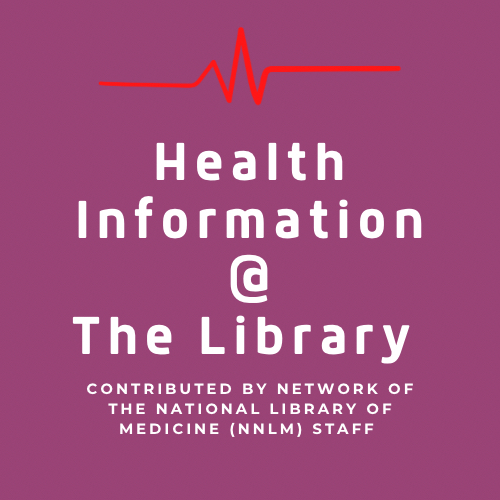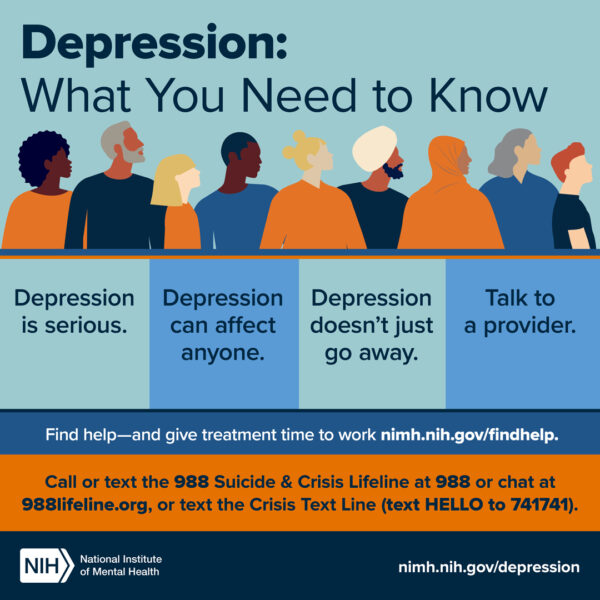Libraries as Beacons of Support: Empowering Communities During Mental Health Awareness Month

May marks Mental Health Awareness Month, a time dedicated to raising awareness and reducing stigma around mental health issues. Public libraries have a unique role in this endeavor as pillars of community support. By providing access to a wealth of health information resources, libraries can empower their patrons and foster a supportive environment for mental wellness.
The mental health landscape in the United States is fraught with significant challenges that underscore the urgent need for enhanced support and resources. These statistics serve as a stark reminder of the pervasive impact of mental health issues across different demographics.
- About one in five American adults experienced a mental health condition in a recent year, translating to approximately 20% of the population or over 50 million people. Nearly one-third (28%) of adults with a mental illness reported that they were unable to access the necessary treatment, most of them because they could not afford it.[i]
- A significant disparity exists between LGBTQIA+ and heterosexual high school students in mental health challenges. 69% of LGBTQIA+ students reported persistent feelings of sadness or hopelessness, nearly double the 35% reported by their heterosexual peers. Furthermore, over half of LGBTQIA+ students (52%) experienced poor mental health in the past 30 days, compared to 22% of heterosexual students. The situation escalates with 45% of LGBTQIA+ students seriously considering suicide, 37% making a suicide plan, 22% attempting suicide, and 7% sustaining injuries from such attempts—figures that starkly contrast with 15%, 12%, 6%, and 1% reported by heterosexual students, respectively. These statistics highlight the acute need for targeted mental health support for LGBTQIA+ youth.[ii]
- Rural Americans, compared to their urban counterparts, face higher rates of depression and suicide, yet they have less access to mental healthcare services. Additionally, the suicide rates in rural areas are between 64% and 68% higher than those in large urban centers.[iii]
While Public Libraries cannot and should not offer mental health advice, they can provide access to reliable mental health information resources and partner with others for programming. Public libraries have always been more than just places to borrow books. They are community hubs where people seek information, learn new skills, and connect with others. During Mental Health Awareness Month, libraries can leverage their position to educate the public about mental health. By curating displays of books and resources related to mental wellness, libraries can help patrons understand and manage mental health conditions. Additionally, librarians can organize workshops or talks featuring mental health professionals who can provide expert knowledge and answer questions from the community.
In today’s digital age, libraries increasingly offer virtual services that extend their reach beyond physical walls. E-resources such as ebooks, audiobooks, and online databases can be invaluable for those researching mental health topics. Libraries can enhance their digital collections with mental health and wellness materials. Furthermore, hosting virtual events or webinars can make such resources accessible to a broader audience, including those who may not be able to visit the library in person.
Partnering with Mental Health Professionals and Organizations:
Collaboration is key in expanding the impact of library services. By partnering with local mental health professionals, support groups, and organizations, libraries can offer more comprehensive resources and programs. These partnerships might involve guest lectures, Q&A sessions, and even regular mental health screenings. Collaborative efforts can also lead to the development of guides or resource lists that can be distributed both in the library and online, ensuring that reliable mental health information is readily available to all community members.
Creating a Safe and Welcoming Environment:
Libraries are sanctuaries for many, providing a safe and quiet space away from the stresses of daily life. Librarians can enhance this aspect by designing spaces that promote calm and relaxation, such as quiet reading corners outfitted with comfortable seating and soothing decor. Additionally, training staff to handle mental health inquiries with empathy and discretion ensures that all patrons feel supported and respected when seeking information on such sensitive topics.
As we observe Mental Health Awareness Month, public libraries can play a pivotal role in educating and supporting their communities. Through thoughtful programming, robust resources, and meaningful partnerships, libraries can shine as beacons of support and information. By embracing this role, librarians enhance their services and contribute significantly to their patrons’ well-being. Let’s use this month to reinforce the library’s position as a vital resource in promoting mental health awareness and support. Whether expanding your library’s collection, hosting informative events, or simply creating a welcoming space, your efforts make a profound difference. Let’s continue to work together to destigmatize mental health issues and empower our communities.
Explore Learning Opportunities from NNLM
- Providing Mental Health Resources at Your Library
- Mental Health in the Workplace
- Providing Mental Health Resources at Your Library. April 9, 2024. Webinar Recording.
- Health Literacy of People Living with Mental Health or Substance Use Disorders Webinar Recording
Funded Projects
Connect with your local regional office to find current funding opportunities.
- Apple of His Eye Inc. Promotion & Enhanced Engagement of Mental Health Education Programming Offered by NAMI Southwest Ohio
- Community Partnerships to Address Mental Health Literacy and Stigma in Rural Northeastern Washington
[i] The State of Mental Health in America. (n.d.). Mental Health America. https://mhanational.org/issues/state-mental-health-america
[ii] CDC report shows concerning increases in sadness and exposure to violence among teen girls and LGBQ+ youth | Fact Sheets | Newsroom | NCHHSTP | CDC. (2023, March 9). https://www.cdc.gov/nchhstp/newsroom/fact-sheets/healthy-youth/sadness-and-violence-among-teen-girls-and-LGBQ-youth-factsheet.html
[iii] Rural Health Includes Mental Health. (n.d.). Rural Minds. https://www.ruralminds.org/rural-health-includes-mental-health










